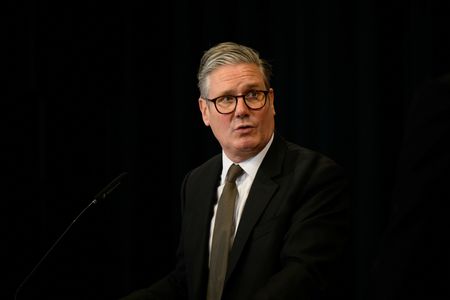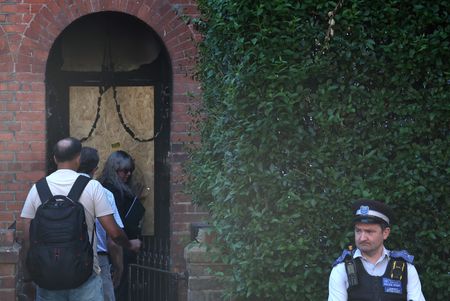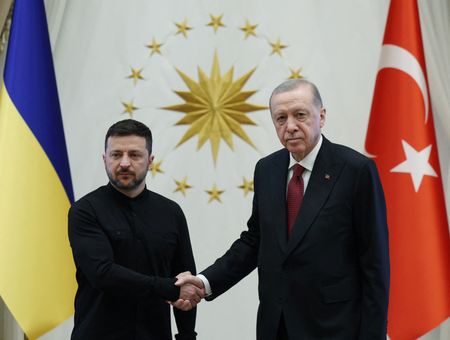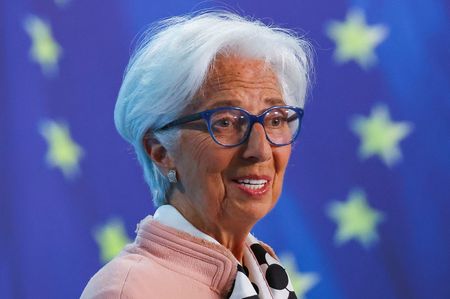TIRANA/LONDON (Reuters) – The British government is in talks with unspecified third countries about deals to send them migrants who have been refused the right to stay in Britain and run out of legal options to avoid deportation.
Prime Minister Keir Starmer is under pressure to show he can control migration – an emotive subject for many voters who feel it is too high, and one which has for more than a decade driven successive governments to seek to tighten Britain’s borders.
On Thursday Starmer confirmed he was talking to “a number of countries” about “return hubs” where Britain could send those who have no legal right to remain in the country and have exhausted all avenues of appeal.
Any such deal would draw comparisons with a plan developed by the previous Conservative government to deport asylum seekers to Rwanda – a scheme Starmer had dismissed as a gimmick and scrapped immediately after winning power at an election in July.
Starmer was speaking during a visit to Albania, where he announced work to tackle people-trafficking gangs who help migrants travel to Britain, often on small and dangerous boats launched from the French coast.
At a press conference with Starmer, Albanian Prime Minister Edi Rama said a similar returns model agreed between Italy and Albania needed to be fully tested. So far the scheme has faced numerous judicial hurdles.
Rama said that while other countries may replicate such deals, he was not willing for Albania to do so for Britain.
Starmer said he would give further details on his talks about return hubs “at the appropriate time”.
In a separate briefing, his spokesman set out more on who could be covered by any future deal.
“This would apply to people who have exhausted all legal routes to remain in the UK, but are attempting to stall, using various legal tactics whether it is losing their papers or other tactics to frustrate their removal,” the spokesman said.
“Under these proposals they will be removed to a safe third country whilst they await new documentation to ensure they don’t have a chance to make their removal harder.”
(Reporting by Fatos Bytyci and Andrew MacAskill, writing by William James; Editing by Alexandra Hudson)











